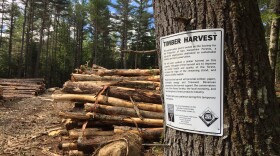The Chairman of the Society of Forest Medicine at Nippon Medical School in Tokyo, Japan Dr. Qing Li, studies nature’s effect on the human immune system. A person’s natural immune cells called “NK cells” can be reliably measured in a lab. NK cells function like white blood cells to increase resistance to illness including cancer by sending self-destruct messages to tumors and virus-infected cells. Stress, aging and pesticides reduce NK counts.
Dr. Li wondered if contact with nature would increase NK cells. Li suspected the aromatic chemicals found in forest air were beneficial. To establish a link, Li brought middle-aged Tokyo businessmen to the woods. For three days, they hiked in the mornings and afternoons. Blood tests showed that NK cells increased 40 percent. Even a month later, NK counts remained higher than when the study started while urban walking trips didn’t change NK levels.
Japanese scientists have identified more than 50 aromatic compounds in the countryside that are not found in city air outside of parks. Researchers are studying “pinene” for antimicrobial properties and “limonene,” from citrus trees, as possible tumor suppressors in cancer patients.
Links between trees and human health reveal how through co-evolution, forests function as pharmacies. Another good reason to take a walk in the woods!








